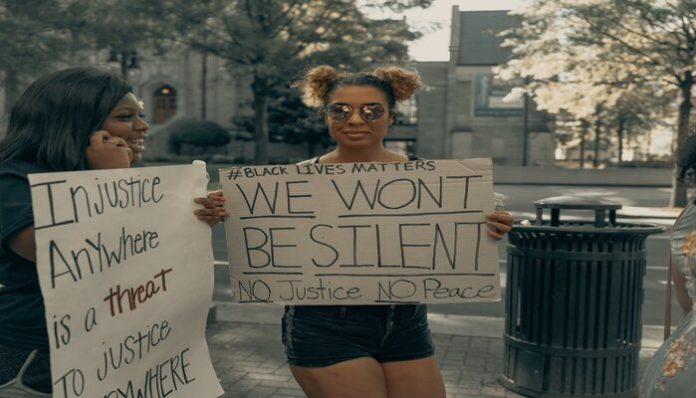
After being ignited by the deaths of George Floyd, Breonna Taylor, and Tony McDade, protests have erupted across the country and around the world. Society is at the breaking point of seeing black death. However, some have treated this experience more like boot camp instead of a mission in which you integrate righteous rage with joy and living. It’s more than a hashtag. The truth is dismantling institutional racism isn’t a week-long effort but long term work.
Here’s how you can make sure black lives still matter:
Continue to acknowledge your privilege.
Use your privilege to fight racial injustice against the black community. Keep seeing. Focusing on the fact there is a privilege that a white person or non-black POC has. Elevate stories of black loss. Speak up when black people are underrepresented in professional settings. Call out racism when you see it. It is always on those with this privilege who choose to overlook these issues, not on those who are facing the issues.
Continue to confirm the existence of anti-blackness in all forms.
Continue to uphold the message that all black lives are important. Address anti-blackness in your community and anywhere possible. Take action on the underrepresented issues such as the high murder rate of black trans women. Vocalize your support by saying his/her/their name. Understand people who are lost to racist violence are more than a hashtag or statistic. Continue to be sensitive about sharing videos of black death. Confirming and combating anti-blackness in daily life can go a long way.
Know that anti-racism is about actions in everyday life.
Being a true anti-racist is much more than sharing hashtags on social media. It’s about addressing any biases- the attitudes or stereotypes that affect our understanding, actions, and decisions in an unconscious manner- that may exist within you. You can subconsciously hold deeply racist views while acting like you’re not racist in your life. Never use first impressions or gut instincts based upon racist stereotypes to assess anyone. See that experiences of anti-black racial trauma are real by consuming art that discusses this such as When They See Us. See that black joy and excellence are valid. Use statements that embrace multiculturalism instead of “choosing not to see color”. Constantly evaluating your thinking about black people and working to improve yourself can help.
Fight for racial justice in education.
Understand black lives matter inside and outside of the classroom. Listen to black parents and children when they say an educator is racist and call that out. Look at the school curriculum. Make sure black history, culture, and life are not left out. Call on administrators to hire, support, and promote more black educators and counselors. Call out school policies that can cross into racist territory such as dress codes and discipline codes. Making a serious effort to end black exclusion in education and calling out passivity and indifference to the education of black children can bring change.
Don’t let the movement be reduced to a cultural debate by hostile environments.
Don’t let the attention that was paid to black anger die. Continue to examine and analyze how the conversation around race has been shaped by the media. Reject treating race as a spectacle instead of the serious subject it is. Ask that companies do more than make performative gestures of support through posting black squares. Ask them to hire and promote black people. Listen to black voices all the time. Not just when racism is being debated.
Continue to be a true ally in solidarity with the movement and participate in it offline.
Keep supporting black businesses by purchasing from them. Make sure that your BLM support counts with your time, wallet, and money. Continue to vote out those who advocate for racist ideology. Continuously make recurring donations to funds that support black individuals. Advocate for legislation that ensures police accountability and justice for black people. Keep speaking up about this issue beyond your Facebook timeline. A large number of people engaging in these things propagates real change.
Being truly dedicated to racial justice isn’t for the faint of heart or thin-skinned. It requires remaining strong and principled while walking along the long, grueling road to change. Remember all black life matters all the time, not just when it’s lost.
Featured Photo by Clay Banks on Unsplash


















